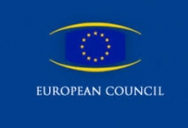Final deal is reached for a new governance of the EU Energy Union
EU must remain a region that welcomes those fleeing war, persecution and terror
S&Ds call, with other pro-European forces, for breakthrough on migration challenge at next EU Council
PES common candidate nominations due by 19 October

The Party of European Socialists will announce nominations for its common candidate for the President of the European Commission by 19 October this year, it was agreed today by representatives of PES member parties and organisations.
The PES Presidency meeting held in Riga, Latvia, fully supported the proposal that all PES member parties should be involved in a transparent and democratic process to nominate their candidates.
If there is more than one candidate, there will be a competition between them which will culminate in a PES European Election Day on 1 December 2018. A PES Congress on 7–8 December in Lisbon will ratify the results and confirm the common candidate.
PES president Sergei Stanishev said:
"It is great that PES member parties will be involved in the process of selecting our common candidate on the PES European Election day.
"At the last elections, the PES led the way as the first European political party to commit to the common candidate process, which was a commitment to improving democracy and transparency. Now we are taking this a step further."
The procedure of selecting the common candidate was adopted after almost a year of discussion in a special PES working group, chaired by PES treasurer and former Irish Minister Ruairí Quinn.
Nils Ušakovs, mayor of Riga and leader of the Saskaņa party which hosted the event, added:
"I am happy that such an important decision as the PES common candidate procedure was taken here in Riga, home of the youngest PES member party, Saskaņa. This is a clear signal that in the PES transparency and democracy rule, and there are no small or big parties in our progressive family, only equal partners."
The Presidency meeting also agreed that the future common candidate will have a key input in shaping the PES manifesto for the 2019 European election. European socialists and democrats will adopt their election manifesto in February 2019.
Notes for editors
- All 28 EU member states are represented by their progressive parties at the PES, which brings together 34 socialist, social democratic, labour and democratic parties as full members. Together with 12 associate parties and 12 observer parties from outside the EU, we fight for a better and more progressive Europe.
- The current president of the PES is Sergei Stanishev.
The Socialists & Democrats Group is the parliamentary group of the PES.
S&Ds: With the post-Cotonou Agreement, the EU must invest more in cooperation with ACP to face common challenges together
The Guild of European research-Intensive Universities
European Society of Anaesthesiology
S&Ds demand an EU-wide strategy and more funding to fight antimicrobial resistance
Time to turn the page of austerity and build a stable and sustainable future for Greece, says Udo Bullmann
S&D MEP István Ujhelyi proposes an agenda for the future of mobility in the EU
ACCA welcomes the launch of the EU-Australia and EU-New Zealand Free Trade Agreements negotiations

The negotiations towards ambitious new free trade agreements (FTAs) between the EU and Australia and the EU and New-Zealand will hopefully pave the way towards enhanced sustainable trade relations with the Asia-Pacific region, says global accountancy body ACCA (the Association of Chartered Certified Accountants).
Soo Yee Leong , ACCA’s Director for ASEAN and ANZ, says: “Australia and New Zealand are among the world's fastest-growing developed economies and the EU is already Australia’s second and New Zealand’s third biggest trade partner. Free trade is indispensable to growth and we are convinced that the FTAs among like-minded partners in providing new market access opportunities for businesses on both sides, particularly in terms of services and investment will help to deliver jobs, smart and inclusive growth and investment, benefitting EU businesses and citizens alike.
“This is particularly relevant for ACCA as a global body, especially since two year ago, we joined forces with CA ANZ, Chartered Accountants Australia and New Zealand, to form a strategic alliance to shape and lead the future of our profession together. This alliance represents the voice of more than 800,000 members and future professional accountants around the world - that’s 315,000 members and 486,000 students across 181 countries -, who share the commitment to uphold the highest ethical, professional and technical standards.
The ACCA-CAANZ alliance is working on joint initiatives, looking at the wider components of the profession, and the different areas of learning that people in the finance profession more widely might need. One of the key elements of the alliance is to allow members to use their qualifications in a number of different locations, improving their international mobility. And for that we need to ensure that everyone has the right qualifications and skills and a huge part of this lays on digital delivery, which knows no border”.
“ACCA has currently some 7,000 members and students in Australia and New-Zealand, and we believe they can help both sides benefit from this future agreement, which will build on the ongoing trade negotiations with several Asia-Pacific countries and cover areas close to the hearts of our members, such as labour and environmental matters, trade facilitation, and small business, thus contributing to shape sustainable global trade. This will undoubted by be discussed at the forthcoming World Congress of Accountants, to be co-hosted by CA ANZ in Sydney in November”, Soo-Yee Leong concludes.
-ends-
About ACCA
For media enquiries, contact: Cecile Bonino, Head of EU Affairs, Tel: +32 (0) 2 286 11 37, cecile.bonino@accaglobal.com
ACCA (the Association of Chartered Certified Accountants) is the global body for professional accountants, offering business-relevant, first-choice qualifications to people of application, ability and ambition around the world who seek a rewarding career in accountancy, finance and management.
ACCA supports its 200,000 members and 486,000 students in 180 countries, helping them to develop successful careers in accounting and business, with the skills required by employers. ACCA works through a network of 101 offices and centres and more than 7,200 Approved Employers worldwide, who provide high standards of employee learning and development. Through its public interest remit, ACCA promotes appropriate regulation of accounting and conducts relevant research to ensure accountancy continues to grow in reputation and influence.
ACCA is currently introducing major innovations to its flagship qualification to ensure its members and future members continue to be the most valued, up to date and sought-after accountancy professionals globally.
Founded in 1904, ACCA has consistently held unique core values: opportunity, diversity, innovation, integrity and accountability. More information is here: www.accaglobal.com
S&Ds welcome Council’s general position on workers’ rights. More needs to be done to ensure fairer conditions for European workers
CLEPA President: Smart policy avoids dependency on one technology

CLEPA President Roberto Vavassori, speaking at the Association’s General Assembly last week, stressed that CLEPA will continue to make the case for technology neutrality, reaching out to policy makers, other sectors and societal stakeholders alike to build alliances for a holistic approach to decarbonise transport worldwide.
“CLEPA favours any and every technology that brings more sustainability to Europe, its citizens, its employees and its companies”, said Vavassori. There is the clear need to adopt an holistic approach to the decarbonisation of mobility. Europe’s automotive suppliers are part of the solution: we are at the same time concerned citizens wanting the best environment, critical consumers looking for the most convenient way to move around, as well as highly engaged employees in the mobility value chain”
“As it has been for the last century, we need to assure that the technologies for the mobility of the future continue to come from Europe. There is the need to define what I call the ‘European Way’, where a competitive regulation is an important part of the ecosystem, and the geopolitical context is taken into account. Smart policy avoids dependency on one technology, follows the circular economy principle and directs investments in a sustainable way.”
The CLEPA Annual General Assembly, taking place in The Hague, confirmed the activities and work plan of the association, and reaffirmed its leadership team with the election of two new vice-presidents as well as a number of Board of Director mandates. CLEPA members also reinforced the association’s operational structure, updating its governance rules and setting framework conditions to deliver on the organisation’s mission and vision.
The CLEPA focus in 2018 and 2019 will continue to be on the main regulatory dossiers currently going through the EU institution’s. These include the CO2 emission reduction proposals for both passenger cars and trucks, as well as the revision of the General Safety Regulation, which is essential to maintain the EU road safety record and prepare the way for automated driving. In addition, matters related to access to data, research & innovation, type approval, repair and maintenance, materials and substances, international trade developments and many other market access requirements are closely monitored by the association. Several of these topics will move over to the new Parliament and Commission terms, after the European elections in May of next year.
Since June 2017, CLEPA has added seven new members, reaching a total of 119 corporate members, 13 national associations and 11 associated members.
The next General Assembly meeting will be organised in Brussels in June 2019.
Note to the editor:
CLEPA represents over 3.000 companies supplying state-of-the-art components and innovative technology for safe, smart and sustainable mobility, investing over 20 billion euros yearly in research and development. Automotive suppliers in Europe employ nearly five million people across the continent.
For more information, please contact: CLEPA- Pilar Perez (p.perez@clepa.be)
Medicines for Europe members publish disclosure of Transfers of Value to the healthcare community

- Today, there is a requirement to publish disclosure of transfers of value as defined by the Medicines for Europe Code of Conduct as a rule of membership of our trade association.
- This disclosure marks a milestone in Medicines for Europe’s commitment to transparency in its interactions with the healthcare community.
Medicines for Europe is committed to bringing accessible, high quality medicines to patients across Europe. Already today our industry supplies 63% of dispensed medicines in Europe.
COCIR welcomes end to unjustified restrictions on non-personal data flows in the EU
COGEN EUROPE decries missed opportunity on "Energy Efficiency First" across Clean Energy Package

The agreements reached on energy efficiency, energy governance and renewable energy over the past fortnight by the EU Institutions, fall well short of a comprehensive approach on energy efficiency. The much-coveted deals on targets came at the expense of an actionable framework to apply energy efficiency at all levels of the energy value chain and across all energy sources.
The deal on the Energy Efficiency Directive (EED) review sets an EU headline target of 32.5% for 2030, with the option to express national contributions in either primary energy or final energy or both. This level of flexibility is inconsistent with the overall objective of the EED, which aims that all Member States use energy more efficiently at all stages of the energy chain, from production to final consumption. Commenting on this development, Hans Korteweg, COGEN Europe Managing Director, said: “Instead of only focusing on final energy savings, which represent only a portion of the energy used in the system, one should focus on primary energy, where the biggest potential for energy efficiency lies. Accounting for primary energy gives Member States the full picture of the energy system, providing sufficient flexibility to cost effectively reduce losses in both energy supply and demand.”
It is also key to properly measure the efficiency of the whole electricity system, taking into account the real energy mix and impact of seasonal demand and supply patterns. The Primary Energy Factor for electricity (PEF) is a key instrument to achieve that. The default EU PEF value of 2.1 agreed as part of the EED deal does not reflect the significant energy losses in the electricity systems of many Member States and is not reflective of the electricity mix used during the heating season. Hans Korteweg commented: “The average efficiency of electricity delivered to consumers is below 50%, and even lower during peak demand or in winter. This means that more than half of the energy is lost in inefficient power plants and grids before it can reach the consumer. A PEF that is too low, underestimating the energy wasted in the electricity sector, will undermine efforts to increase efficiency and decarbonise. We must therefore ensure that the EED’s EU PEF is not applied arbitrarily to key energy sectors, like heating.”
The weak focus on energy efficiency is also reflected in the Renewable Energy Directive (RED II) agreement from 14 June. Instead of prioritising support for biomass use in cogeneration plants, reaching efficiencies above 75%, Member States may still subsidise much less efficient power-only plants. What is more, no specific efficiency conditions apply to biomass plants below 50 MW. The compromise waters down the European Commission’s original proposal. It is also less ambitious than the existing EU energy efficiency legislation, which foresees that all power-only plants above 20 MW should first consider cogeneration. “Bioenergy, geothermal, hydrogen and solar thermal fuels can be used in cogeneration plants as a way to increase the share of renewable energy in both electricity and heat, while putting energy efficiency first. Yet, without a push to prioritise the most efficient use of biomass with cogeneration, there is a risk that renewable electricity and heat from biomass will be supported separately, wasting EU citizens both money and energy”, said Hans Korteweg.
More positively, “energy efficiency first” is now defined as a core principle in the Energy Governance Regulation. Yet, it is up to Member States to implement this principle across the whole energy system. More ambition on energy efficiency will make better use of renewables and reduce our energy bills. Combining renewables and energy efficiency will lead to faster decarbonisation of our energy system.
Lastly, COGEN Europe calls for a substantive debate on the role of cogeneration in the future energy system. There is still an opportunity to address the main provisions covering cogeneration in the EED (article 14), not included in the Clean Energy Package. Evidence shows that the implementation of the EED framework for cogeneration has been unambitious in many Member States and needs to be addressed. COGEN Europe is committed to a resilient, decentralised and carbon neutral energy future with cogeneration as its backbone. It is time for policymakers to create the proper conditions to make that happen.
END
ABOUT COGEN Europe
COGEN Europe, the European Association for the Promotion of Cogeneration, is the cross-sectoral voice of the cogeneration industry. Its mission is to work with EU institutions and stakeholders to shape better policies and eliminate administrative, regulatory and market barriers to the wider use of cogeneration in Europe. It aims to build a robust evidence-base to show the benefits of cogeneration, using the expertise of its membership, and establishing strong coalitions and partnerships.
For further information please contact:
Thomas Vanhauwaert
Communications Officer
thomas.vanhauwaert@cogeneurope.eu
www.cogeneurope.eu
The Week Ahead from the ECR Group in the European Parliament 25th - 29th June 2018
Extension of the Facility for refugees in Turkey
On Thursday, the parliament's budget committee will endorse the second tranche of funding for Facility for Refugees in Turkey (FRT). ECR budgets spokesman Bernd Koelmel supports the funding which will ensure a smooth continuation of actions funded under the first tranche, such as the salaries of the 5,000 teachers who provide education for over 300,000 child refugees in Turkey. While this funding continues, Koelmel stresses the importance that the European Commission must provide thorough evidence for how the EU's budget is being spent on this and other facilities in Turkey.
When: Thursday 28 June 10.00
Contact: Michael Strauss, michael.strauss@ep.europa.eu, +32 470 882 348
Migration 'mini summit'
A small number of Member States will meet on Sunday in at an informal summit in Belgium organised by the European Commission to try and bridge their differences on how to handle Europe's migration crisis. The ECR Group believe that for the EU to have a migration system that works the whole Council must adopt common sense policies that respect the positions of national governments.
Contact: Gareth Goldsmith, gareth.goldsmith@ep.europa.eu, +32 476 668 050
Efficient spending of EU funds
A programme to help Member States better spend union funds is due to be voted by the Regional development committee on Monday. ECR MEP Ruža Tomašić is the parliament's rapporteur on the EU's Structural Reform Support Programme which aims to strengthen the capacity of Member States to prepare and implement growth-sustaining administrative and structural reforms.
When: Monday @ 17:00
Contact: Marta Lipinska, marta.lipinska@ep.europa.eu, +32 470 904 337
ECR Group meeting in Sofia
The ECR Group will meet in Sofia from Tuesday to Friday this to coincide with the conclusion of the Bulgarian presidency of the EU. We will meet government ministers and discuss a range of issues including EU-Western Balkan relations while also examining the agenda of the forthcoming Strasbourg session in July.
Contact: Jan Krelina, jan.krelina@ep.europa.eu, +32 493 214 346
For a list of all ECR Press Officers go to (scroll down): http://ecrgroup.eu/contacts/
The ECR was created to take the EU in a new direction, according to the principles of our founding Prague Declaration. It is the third largest group in the European Parliament with 71 MEPs from 18 EU states.
For more information on the ECR, watch our promotional video at http://youtu.be/F5syQt1JuQI or visit our website: www.ecrgroup.eu
The Pew Charitable Trusts
European Livestock and Meat Trades Union (UECBV)
‘Together, we shape the future of the profession’, ACCA celebrates thirty years in China

ACCA commemorates landmark anniversary in China with members and partners
A series of events to celebrate ACCA’s (the Association of Chartered Certified Accountants) 30th anniversary in mainland China will be taking place in Beijing, Guangzhou and Shanghai from 21 to 25 June 2018.
ACCA was the first global accountancy body to establish its presence in mainland China in 1988 following a successful meeting with the newly created national organisation for the profession CICPA, a key partner of ACCA’s since that time.
Ada Leung, director of ACCA Greater China says: ‘Our celebrations are themed “Together, we shape the future”, highlighting how partnerships and connections have helped to build the profession in China. Our events will showcase the work of our members, and also how building and sustaining global connections are vital for the modern profession to flourish and for economies to grow. A key attraction at these events will be ACCA’s 200,000 member wall, which lists the names of ACCA’s global membership – our online version is a testimony to the work of our members all around the world.’
Helen Brand OBE, ACCA’s chief executive, adds: ‘As the world's second-largest economy, China has become the centre of the global supply chain, an important exporter and consumer of commodities, while at the same time being a global leader in the digital economy. We’re committed to supporting growth in China by thinking ahead, and connecting local businesses, finance professionals and other stakeholders through our expansive global network.’
‘The last 30 years has been made possible through partnerships. China’s at an exciting point in its history, with its drive to open up new trade routes and marketplaces, to build on existing connections, and to create new ones. We look forward to playing our part in this exciting future for the next 30 years and beyond.’
Ada Leung concludes: ‘China’s on a path to sustainable national rejuvenation with ambitious targets set for 2020 and 2035. This new era in economic development will enable the country to become a global leader in innovation as well as ensuring greater equality and living standards for all.
‘The accounting profession has a key role to play in supporting these goals and ACCA is proud of the part it has been able to play in developing capacity in China over the last 30 years. We’re proud of our close relationships with Chinese partners including the Ministry of Finance, CICPA, the three national accounting institutes, universities and employers.’
ACCA’s AB China magazine includes an in-focus look at ACCA’s 30 years in mainland China, including a Q&A with Helen Brand and Ada Leung, an article by ACCA’s first member in mainland China, David Wu; and ACCA’s timeline there since 1988.
- ends -
For media enquiries, contact:
Helen Thompson
E: Helen.Thompson@accaglobal.com
T: +44 (0)20 7059 5759
M: +44 (0)7725 498 654
Twitter @ACCANews
About ACCA
ACCA (the Association of Chartered Certified Accountants) is the global body for professional accountants, offering business-relevant, first-choice qualifications to people of application, ability and ambition around the world who seek a rewarding career in accountancy, finance and management.
ACCA supports its 200,000 members and 486,000 students in 180 countries, helping them to develop successful careers in accounting and business, with the skills required by employers. ACCA works through a network of 101 offices and centres and more than 7,200 Approved Employers worldwide, who provide high standards of employee learning and development. Through its public interest remit, ACCA promotes appropriate regulation of accounting and conducts relevant research to ensure accountancy continues to grow in reputation and influence.
ACCA is currently introducing major innovations to its flagship qualification to ensure its members and future members continue to be the most valued, up to date and sought-after accountancy professionals globally.
Founded in 1904, ACCA has consistently held unique core values: opportunity, diversity, innovation, integrity and accountability. More information is here: www.accaglobal.com















